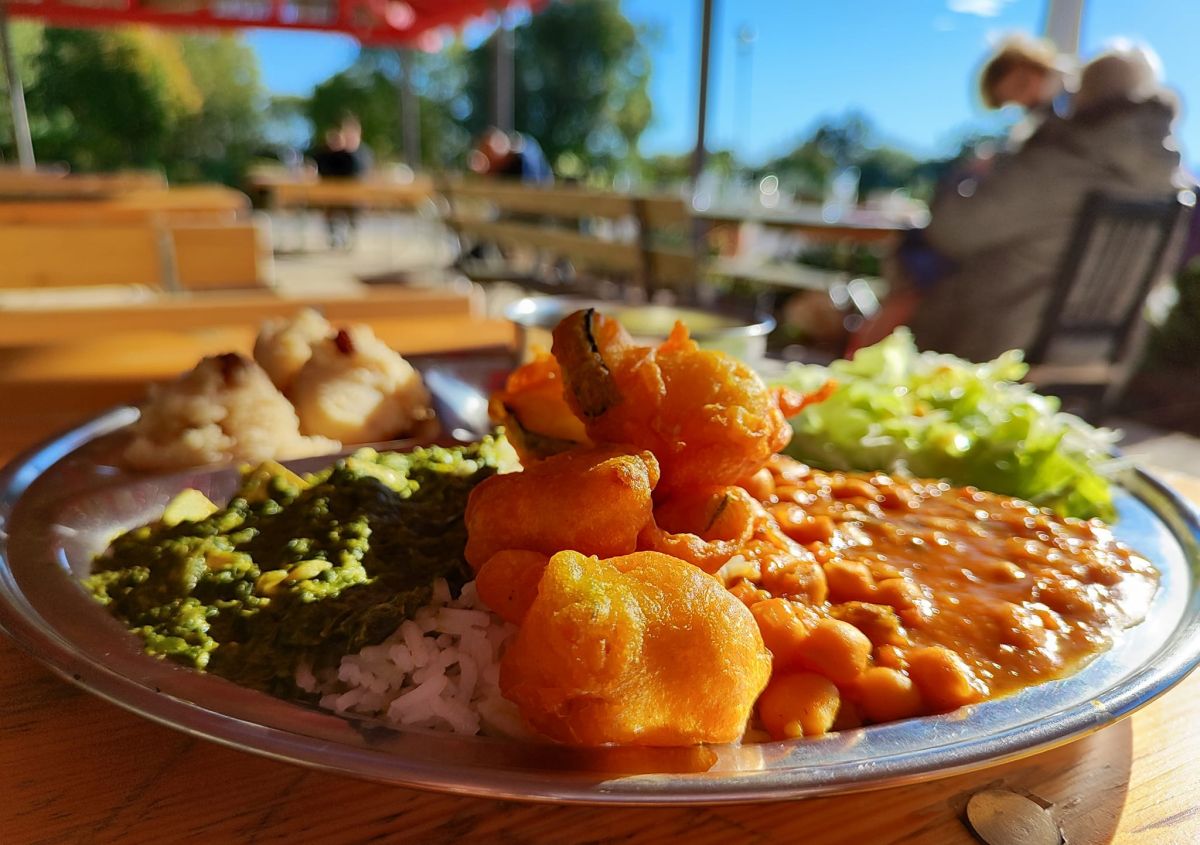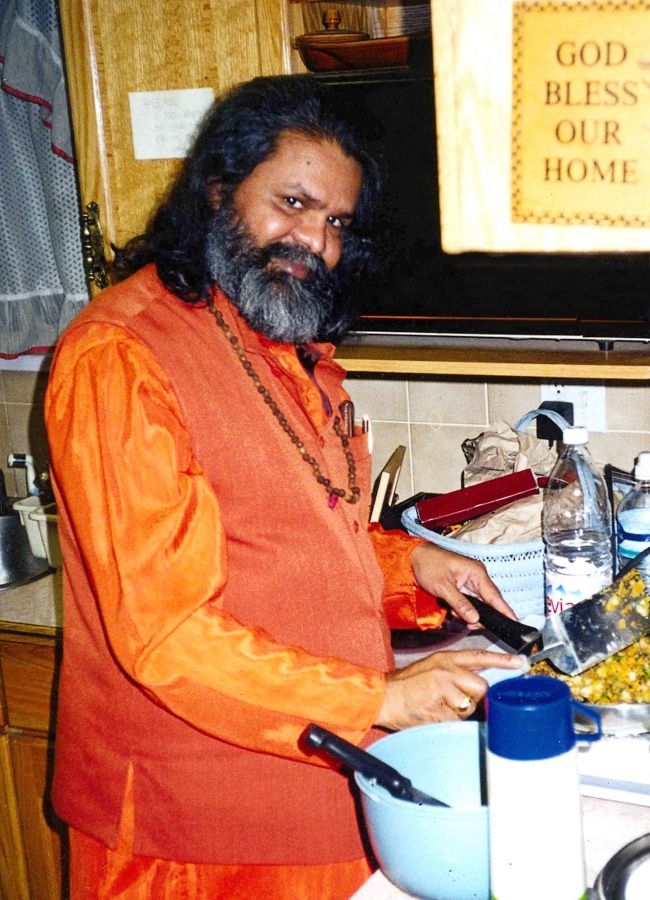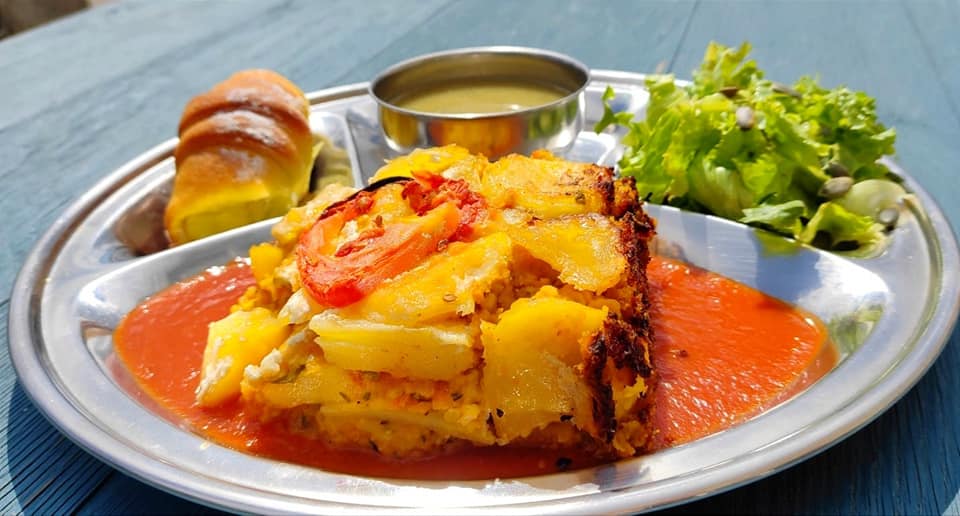Make a change on your plate

In the 1970s, Vishwaguruji came to Europe with a strong desire to teach Western people Yoga and Vedic science. But his first experience was that most Westerners eat meat, fish and eggs, even the people who had invited him to Europe.
Since he came from a traditional culture in India, where animals are protected, and his parents, Pandit Krishna Ramji Garg and Srimati Phool Deviji Garg, were both very pure and religious people who followed a strict vegetarian diet, the first basic lessons Vishwaguruji gave in Europe were about the vegetarian diet and cuisine.
Now, as the modern development and industrialisation of the dairy industry have led to the cruel exploitation and slaughter of cows and their calves, Vishwaguruji is increasingly advising that a fully vegan diet, without any animal products, is the right way to live – from spiritual, physical health, environmental and ethical points of view.
Vishwaguruji often refers to the ancient mantra: VISHWA PRANI MERI ATMA HAI – All living beings are my Self.
He reminds us that all beings want to be happy and avoid suffering. Animals experience fear and pain, just as humans experience fear and pain. Animals also fear death, just as we humans fear death. This is why yoga rejects the killing and eating of animals because there is an inherent awareness that all living beings are united in one consciousness.
Yoga in Daily Life is dedicated to promoting health, inner peace and harmony and therefore also promotes a diet that can achieve this. By eating plant-based foods, we can free ourselves from depression and anxiety, clear our minds and fill our bodies with vital energy. Considering that we inevitably absorb the animal's fear of death and subsequent stress hormones when we consume their flesh, it is very important to avoid eating meat.
Another important point for our subtle energy body is the way the food we eat is prepared. We say that the mother's food is the best because the mother prepares the food for her family with great love and positive thoughts. When we prepare our food in this way, we put the subtle vibration of these positive feelings into the food.
It is also important to be grateful for the food we receive. Traditionally, people all over the world say prayers or 'grace' before eating, to express their gratitude. Before you eat, take a moment to realise how blessed we are to have pure, life-giving food and that no living creature had to suffer or give its life to satisfy our hunger. When you choose a vegetarian or, even better, a vegan diet, prepare your food with love and feel this gratitude, then you will be happy, peaceful and healthy – and so will anyone else who shares the food you prepare.
And finally, by changing our eating habits, we also have the potential to reduce carbon emissions, deforestation and water scarcity, and preserve biodiversity on our planet. According to the United Nations, meat and dairy production from farmed livestock contributes to 11.2% of man-made greenhouse gas emissions. However, research shows that an individual's vegan lifestyle would reduce their food-related emissions by 68% within 15 years, limiting the impact of global warming when more people make this choice.
Now is your chance to decide that in this new year, you will make positive changes on your plate that are good for yourself, other living beings and the planet as a whole.
May all living beings be at peace and free from suffering...

